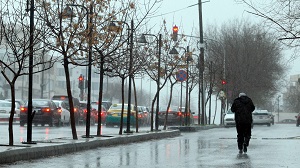108 years after Balfour — Gaza war renews argument on Israel’s colonial legacy
AFP
AMMAN — As the world marks 108 years since the Balfour Declaration, the ongoing war in Gaza and Israel’s latest expansion in the occupied West Bank have sparked renewed debate over the colonial legacy behind the Palestinian tragedy.
The Balfour Declaration, issued in 1917 by Britain’s foreign secretary Arthur James Balfour, promised support for “a national home for the Jewish people” in Palestine, a move that laid the foundation for decades of displacement and conflict. More than a century later, the region is still trapped in the same struggle over land, sovereignty and justice.
In Bahrain, Deputy Prime Minister and Minister of Foreign Affairs, Ayman Safadi, repeated Jordan’s diplomatic stance on stabilising the Gaza ceasefire and addressing the escalating humanitarian crisis.
During a panel discussion titled “The Future of Global Security Governance” at the 21st Manama Dialogue 2025, Safadi said that the “immediate priority is to ensure full adherence to the Gaza ceasefire and to address the war’s devastating humanitarian consequences”.
Safadi’s remarks reflect Jordan’s continued efforts to uphold international law, maintain regional stability and advocate for humanitarian access to Gaza. His participation in the Manama Dialogue came amid renewed Israeli violations of the truce and international concern over the worsening conditions in the Strip.
Political analyst Amer Sabaileh described the current phase as “a defining moment” for the region, urging policymakers to move beyond outdated frameworks that have long dominated regional politics.
Sabaileh in his remarks to The Jordan Times said that it represents a significant shift in regional politics. “But after all this time, it’s necessary to think in ways that belong to today’s reality. Many changes have occurred recently, and it’s time to stop viewing the future through the lens of the past. We need new approaches that respond to current realities rather than repeating what was required a century ago.”
Building on that perspective, political and military analyst Nidal Abu Zeid said that the developments in Gaza and the West Bank “cannot be separated,” describing Israel’s behaviour as “a continuation of a historic colonial model deeply rooted in Zionist ideology.”
“The Israeli occupation operates under a traditional colonial framework built on three principles, the enemy of necessity, the absence of lasting peace, and the perpetuation of war,” Abu Zeid told The Jordan Times.
“Whether through movements in Gaza, settlement expansion in the West Bank, or control along the Jordan Valley and southern Lebanon, Israel continues to execute a systematic colonial project legitimised by political and religious narratives.”
When Britain issued the Balfour Declaration in 1917, it pledged support for the establishment of a Jewish homeland in Palestine, disregarding the existence and rights of its Arab population. The promise, made “by those who did not own to those who did not deserve,” set in motion a century-long conflict that reshaped the region’s political geography.
Today, as Gaza endures its bloodiest chapter in decades, many Palestinians see the ongoing blockade, displacement and destruction as a direct continuation of that original injustice. What began as a diplomatic letter has evolved into a modern humanitarian catastrophe, one that still denies Palestinians their right to statehood and peace.
Jordan, which continues to serve as a key regional partner in humanitarian coordination for Gaza, has reaffirmed its commitment to ensuring the flow of aid, supporting UN relief agencies and advocating a political horizon that guarantees a viable Palestinian state along the 1967 borders with East Jerusalem as its capital.
Latest News
-
 Woman injured after rocket explosion hits Damascus’ Mazzeh neighborhood
Woman injured after rocket explosion hits Damascus’ Mazzeh neighborhood
-
 King, Singapore president discuss enhancing cooperation, regional developments
King, Singapore president discuss enhancing cooperation, regional developments
-
 US approves first military sale to Taiwan since Trump's return to office
US approves first military sale to Taiwan since Trump's return to office
-
 Syria Reopens Embassy in London after More than a Decade
Syria Reopens Embassy in London after More than a Decade
-
 Weather alert: Unstable conditions coming to Jordan
Weather alert: Unstable conditions coming to Jordan